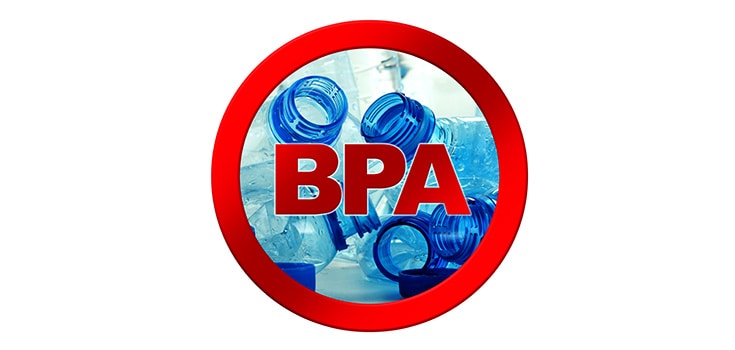New Study: Mother’s BPA Consumption Caused Son’s Overactive Thyroid

The University of California, Berkley has released a new study linking a mother’s bisphenol-A (BPA) consumption with her newborn son’s thyroid problems. “This is one more study in the accumulating evidence that taking steps to avoid BPA would be prudent,” says Tracey Woodruff, director of the University of California, San Francisco’s Program on Reproductive Health and the Environment. Though she was not involved in the study, she cited the study’s examination of BPA’s effect on pregnant women as especially critical.
BPA Exposure Leading to Overactive Thyroid
Study author Jonathan Chevrier of UC Berkley’s Center for Environmental Research and Children’s Health (CERCH) and his team of researchers found that a pregnant mother’s BPA consumption affected her baby’s thyroid. Although girls’ thyroid levels showed no notable changes, boys whose mothers doubled their BPA intake during pregnancy had a 9.9 percent decrease in thyroid stimulating hormone, which means their thyroids were overactive. (Girls, however, did have higher levels of an enzyme crucial to BPA metabolization.)
Protecting Yourself Against BPA
This goes to show that the Food and Drug Administration’s (FDA) ban of BPA from baby bottles earlier this year isn’t enough, and greater steps need to be taken in order to curb exposure on a population-wide scale.
BPA is a “gender bending” hormone that mimics estrogen and wreaks havoc on the endocrine system. It is found in nearly everything from paper money to receipts, plastic toys to food containers, canned food to dental fillings.
BPA is ubiquitous in our environment, says Kim Harley, associate director of the CERCH. Over 90 percent of women within reproductive age have noticeable levels of BPA in their urine, and the implications are greater than big businesses and even government officials want you to know. In fact, it has been linked the following conditions (and more) in several studies:
- Fertility defects in males
- Reproductive problems in females
- Hyperactivity and depression
- Breast cancer
- Diabetes
Luckily there are numerous ways to avoid BPA exposure and to even detox your body from the harmful chemical. Read here for ways to naturally reverse BPA’s effects on your body.
Additional Sources:
